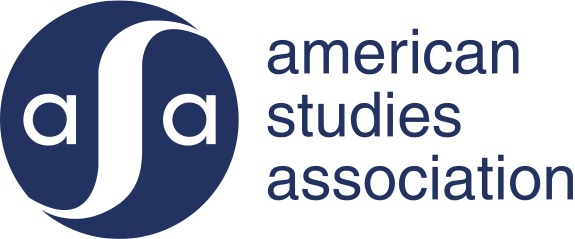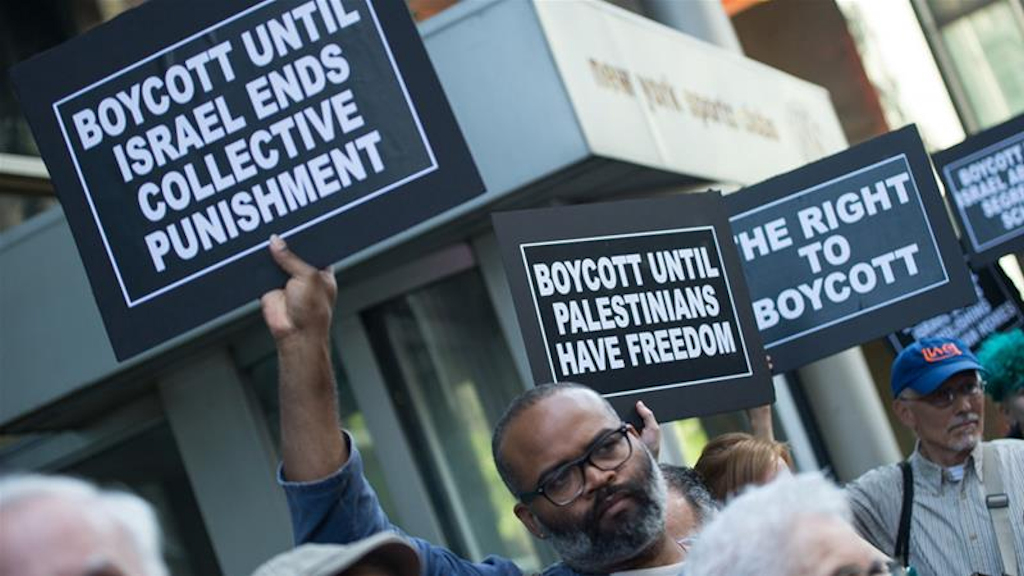Originally published by Ma’an News Agency on December 4, 2013.
A top body of the largest scholarly association dedicated to American Studies voted unanimously in a landmark decision on Wednesday to endorse a resolution supporting the boycott of Israeli institutions of higher education.
The endorsement of the boycott resolution by the National Council of the American Studies Association is a major symbolic victory for activists in the global Palestine solidarity movement, as the scholarly association focuses on the United States, the global superpower that funds Israel to the tune of $3 billion a year.
The resolution, which has been under debate for over a week, highlights the necessity of severing ties with Israeli institutions, stressing the “devastating impact on the overall well-being, the exercise of political and human rights, the freedom of movement, and the educational opportunities of Palestinians,” caused by the Israeli occupation.
The resolution mentions US complicity in the occupation as a rationale for the American Studies Association’s stance, pointing out that the “United States plays a significant role in enabling the Israeli occupation of Palestine and the expansion of illegal settlements and the Wall in violation of international law, as well as in supporting the systematic discrimination against Palestinians.”
The resolution highlights the complicity of Israeli academic institutions with the occupation of Palestine.
“Israeli institutions of higher learning are a party to Israeli state policies that violate human rights and negatively impact the working conditions of Palestinian scholars and students,” it reads.In a statement, the the council explained that its support for the boycott of Israeli institutions is “an ethical stance, a form of material and symbolic action.”
“It represents a principle of solidarity with scholars and students deprived of their academic freedom and an aspiration to enlarge that freedom for all, including Palestinians.”
“We believe that the ASA’s endorsement of a boycott is warranted given U.S. military and other support for Israel; Israel’s violation of international law and UN resolutions; the documented impact of the Israeli occupation on Palestinian scholars and students; the extent to which Israeli institutions of higher education are a party to state policies that violate human rights; and the support of such a resolution by many members of the ASA,” the statement continued.
The decision comes on the tail end of the ASA’s annual conference, which took place in Washington D.C. from Nov. 21-24. Although the deliberations on the resolution began last weekend, in an unprecedented move the association’s national committee chose to extend the debate indefinitely. Debate thus continued around the clock even after the conference attendees had dispersed geographically.
On Wednesday, committee members emerged with the historic decision.The decision marks one of the biggest successes for the Palestinian movement for the academic boycott of Israel to date. Not only is the American Studies Association one of the largest academic associations to sign on to the boycott, it also suggests that the movement for the boycott of Israel has entered the American mainstream.

‘We are expanding Palestinian academic freedom’
The endorsement comes after a four-year campaign by scholars within the Association to raise awareness about the Israeli occupation and to drum up support for the boycott among members.
The resolution primarily commits the American Studies Association to “honor the call of Palestinian civil society for a boycott of Israeli academic institutions,” referring to the 2004 call that launched the international campaign for the academic and cultural boycotts.
“The resolution commits the ASA not to engage with Israeli universities complicit in the occupation and ethnic cleansing,” and is against “institutional collaboration” with any Israeli university, explained David Lloyd, a Professor of English at the University of California, Riverside, in an interview with Ma’an.
He also stressed that the resolution did not target “individual Israeli academics,” but instead focused exclusively on institutions.”The resolution commits the ASA to not engage with Israeli universities complicit in the occupation and ethnic cleansing,” but it “does not prevent collaboration with individual Israeli academics,” or target them in any way he argued.
“The concern is always about Israeli academic freedom,” Lloyd told Ma’an. “What gets sidelined is Palestinian academic freedom.”
“But we are expanding Palestinian academic freedom.”
‘If there is no critical freedom for Palestinians, there is no academic freedom here in the US’
The resolution also contains a clause with a more domestic focus, committing the institution to supporting the “protected rights of students and scholars everywhere to engage in research and public speaking about Israel-Palestine and in support of the boycott, divestment and sanctions (BDS) movement.”
This section is a response to increasing campaigns of intimidation on US campuses against professors who take a critical stance against the State of Israel, according to resolution supporters.
Sunaina Maira, a professor of Asian-American studies at the University of California Davis, told Ma’an, “There is a frustration with censorship in the US academy.”
“Harassment and interference has provoked a counter-reaction among US academics who want to speak about US complicity,” in the State of Israel’s actions, she continued.
“I, myself, was the object of a complaint by the Anti-Defamation League just for teaching Edward Said’s Orientalism and the Question of Palestine,” she said, referencing two books by the late Palestinian intellectual.
“The objective is to open up space to talk without reprisals.”David Lloyd told Ma’an that “220 (members) dared not sign on for fear of intimidation and job security.”
“This is a part of argument: if there is no critical freedom for Palestinians, there is no academic freedom here in the US,” he argued, highlighting the strength of Zionist groups in putting pressure on US-based academics who take a critical stance against Israeli policies.

‘A tipping point was reached’
One of the most striking aspects of the debate was how overwhelmingly supportive of the resolution the majority of the members of the American Studies Association were.
“A tipping point was reached in the ASA and around the country. I haven’t seen anything like this before,” said David Lloyd, referring to the “swell of support” the resolution received among the association’s members.
One indication of this support was the record levels of attendance at a panel focusing on the Boycott, Divestment, and Sanctions of Israel movement. While a similar panel at the conference in 2009, held in the wake of an Israeli assault on Gaza that killed 1,200 Palestinians, had 40 attendees, David Lloyd said that this year’s had at least 400.
“The membership is more strongly behind (the resolution) than I could have ever imagined,” he added.This support could be felt throughout the conference, members reported.
The executive committee of the association organized a large open forum on Saturday, Nov. 23 to allow members to voice their opinions. According the National Council’s estimates, 745 members were in attendance, and members were chosen randomly out of a box and each was given two minutes to speak.
Of the total of 44 speakers who made it to the microphone, a resounding 36 spoke in favor of the boycott.Additionally, rival petitions circulating over the course of the conference give a sense of the wider mood. While the petition in support of the resolution managed to add 450 names from members during the conference, the petition against the resolution managed to gain only around 50 member signatures, according to Lloyd.
Support for the resolution not only came from within the association, but also from activists around the world- including in Israel itself. Boycott from Within, an Israeli organization that works to drum up support for the global boycott of Israel, wrote a letter to ASA members urging them to support the resolution.
“After decades of struggle for the rights of Palestinians (inside Israel), we have come to the conclusion that international pressure needs to be applied to Israel to make it halt its policies of systematic dispossession of Palestinians,” the letter read in part.
US ‘complicity’ in Israeli occupation
The resolution is not the first time an American academic association has chosen to endorse the boycott of Israeli institutions of higher education, but is the second after an April decision by the Association of Asian American Studies to pass its own resolution.
The support for the boycott of Israel from two associations focused on American studies might strike outsiders as strange, but resolution supporters highlighted the linkages between US policies at home and abroad.
“There has been a shift within the ASA towards a focus on settler-colonialism, imperialism, and militarism, and a growing concern about the role of academics as public intellectuals,” says Maira.
“So much of our work is on US imperialism,” she added, referencing the close military cooperation between Israel and the United States.The shifting focus of American Studies scholars has highlighted not only the complicity of US policies in Palestinian dispossession, but also the ways in which settler-colonialism against indigenous people in both the United States and in Palestine have operated.
“People are making connections across militarization, the US-Mexico border- the fact that the Israeli company building the wall through the West Bank is also building a wall on the border with Mexico- as well as indigenous issues.”
“Broader solidarity is emerging,” she added.
Indeed, one of the few calls for an amendment to the resolution during the open forum focused on highlighting the history of settler-colonialism in the US. It stressed the explicit recognition of American studies scholars that their condemnation of Israel stems from a parallel critique of the the US’ bloody history of ethnic cleansing against indigenous people.
Maira also stressed that the climate in US public discourse more broadly has also shifted tremendously with regard to Palestine in the last few years.
“It is one of the main issues in US society today,” she said, arguing that the passage of the resolution and the overwhelming support it received among members is part of a major shift in American discourse.
“So much space has been opened up for discussion about the issue,” she said, pointing out how the campaign to support resolution and the boycott more broadly have led to collaboration between academics, students, and activists to support Palestinian academic freedom- as well as their own.
“It’s like the civil rights movement in the US. A call to put ourselves on the line.”
“This is what Palestinian academics have asked us to do, and it’s a small sacrifice to make,” she added.
Breaking the taboo against criticizing Israel
David Lloyd said that he felt that even just having the conversation on boycotting Israel in an academic setting was a victory, as it broke a major taboo in US public discourse against criticizing Israel.He told Ma’an that, “we have succeeded in making conversation about Palestine normal.”
“That process is spreading to other disciplines too,” he argued, pointing out that at a recent conference of the American Anthropological Association Conference, a panel on BDS at which he spoke had over 70 attendees.
“There was very little hostility there,” he said.
He added that a resolution on the academic boycott of Israel at the association was just around the corner there, as well as at a number of other academic associations.
Despite the intense pressure many academics in the United States come under for their positions on Palestine, the debates around the resolution at the American Studies Association as well as its successful passage demonstrate the increasing acceptance of calls to boycott Israel in us academia and society more broadly.
“They’re completely unable to prevent us from getting the word out,” said Lloyd.